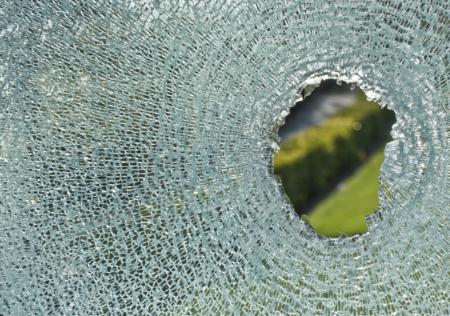Rising with Christ in a broken world
In my daily work at Catholic Relief Services, I routinely encounter suffering: the crisis of 60 million displaced people around the world, a number larger than those displaced in World War II; at least 50 million children not in school; human trafficking; slave labor; impending food shortage for a large number of Ethiopians; or the dry corridor in Central America with unpredictable bursts of torrential rain that eliminate growing seasons and sometimes wipe out complete plantings.
I generally plow on.
But one day, two emails made me stop. The first described the death of 21-year-old Elias, a volunteer at a Catholic organization in Aleppo, Syria. He was cut down by a bomb.
The second email from a longtime friend who expressed her deep sadness over her son's divorce. For this lady, marriage is sacred: a lifelong commitment to which she and her husband devoted themselves. As if this heartbreak needed an external marker, she also sustained a broken elbow, which made impossible her playing the piano for the enjoyment of the elderly in a facility.
I was overwhelmed with the degree of brokenness in our world: broken marriages, broken vows, broken bones, broken families, broken livelihoods, broken governments, broken societies, broken earth, broken spirits.
I imagine the apostles must have felt pretty broken in their world on the Friday and Saturday after Jesus' death. Thoroughly confused and defeated, they must have wondered how the victory that was playing out so spectacularly before the cheering mob just a few days before turned into the hideous drama of the Crucifixion.
Now what were they supposed to believe in? Did they feel betrayed by their master? Whom could they count on? How were they to return to a world in which they witnessed people breaking people? How could they love as Jesus asked them to? What could they do? They burrowed deep in hiding. Total darkness.
Then Jesus rose from the dead. In a way, you can say that nothing changed. The Romans were still there; the Pharisees did not change their minds about him; and as we now know too well, death, oppression and destruction continued. Jesus performed no miracles to change the circumstances of his world and our world.
Jesus' rising only changed people, his apostles and each of us who professes his resurrection to life that could not be defeated by death, nor chained by fear, hatred and suffering.
Jesus did not seek to settle scores with the Romans, Pilate, Herod, the Pharisees, the fickle mob. He just walked and spent time with his friends, accompanying them into life and love with the promise that he is always with them.
Jesus did not ask us to change the world, but to change our hearts so that we can forgive, serve, heal, bear the world's insults, lift up those forsaken by others.
At the Easter Vigil, when our tapers receive the light from the paschal candle, be reminded that we are light from the source of all light, God's chosen to recover the goodness of what he has made, to be hope, to love the people he entrusts to us, and to rise from the resignation that Pope Francis characterized as one of the devil's most favorite weapons.
Before I finished this essay, another email stopped me. The subject line read "Deo Gratias" and it was about a Syrian woman captured a year ago by ISIS but now reunited with her husband and three children.
Let us rise with Christ this Easter.
- Woo is distinguished president's fellow for global development at Purdue University and served as the CEO and president of Catholic Relief Services from 2012 to 2016.



















